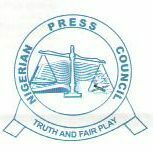The Nigerian Press Council (NPC), in collaboration with the Democratic Governance for Development (DGD) project of the United Nations Development Programme (UNDP), held a two day seminar to sensitize journalists in the North Central Zone on their role in reporting democracy and governance issues in Nigeria. The workshop was declared open by the Benue State Commissioner of Information, Mr. Conrad Wergba, represented by Mr. Ona Ode, the Director, Research and Documentation of the Benue State Ministry of Information.
The workshop, held at the Benue Hotels, Makurdi, is the first leg of such capacity building programmes for journalists in the partnership of NPC and UNDP.
It discussed the role of the media in evaluating the implementation of government programmes; critical areas of focus to guarantee the integrity and challenges of the media, its role of holding those in governance accountable as well as strengthening necessary channels of engagement in the media.
Observations
It was observed that:
- Nigeria is a complex and diverse society still grappling with challenges of corruption; illiteracy; low access to basic amenities such as potable water and electricity; and is plagued with fragile institutions, among others.
- Journalists are often guilty of poor management of Nigeria’s national diversity and tend to demonise certain groups or people because of vested interests.
- The media is a key element in fostering national security, cohesion and promoting accountability in governance.
- The Nigerian Media face serious credibility challenges hence the dependence on foreign media for information on happenings in Nigeria.
- People form opinions based on what is portrayed in the media and for guidance, perception and opinion, thus the Nigerian media should rather earn the confidence of the audience with credible information.
- Some of the major constraints faced by Nigerian journalists in the performance of their expected roles include media ownership structure; non provision of adequate welfare and security for media personnel in the course of their duties; challenge posed by the new and social media, etc.
Recommendations
- Every journalist should strive to be familiar with the Annual Report on human development indices so as to be familiar with governance issues.
- Journalists should strive for scientific journalism based on facts and in-depth investigation to enhance the standard of journalism.
- There is need for journalists to read wide, broaden their knowledge and develop techniques of critical evaluation of governance issues to be effective.
- Reporting about the legislature and other arms of government should be knowledge based and reported with simplicity of language.
- In reporting the legislature, accuracy tenets demand that facts are cross checked and be devoid of malice to enhance integrity. Issues should not be reported within ethnic, religious or partisan political prisms.
- Reporters and editors should be dynamic and improve their skills and abilities to flow with contemporary digitised world.
- The media, as the agent for purveying information, building ideas and entrenching attitudes and opinions, need to increase focus on existing stereotypes with a view to positively influencing the mindsets towards building a cohesive public opinion.
- As journalists have a social role of monitoring, their unions and chapels should have defined boundaries in relating with governments and politicians, the critical elements in governance.
- Journalists should endeavour to restore and pay their check-off dues so as to minimise their dependence on government and enhance their professional independence. This would insulate their reports on governance issues.
- Journalists should always place high premium on values such as credibility and integrity over monetary temptations and inducements.
- There is a need for unimpeded access to the facts and records about governance. As such, transparent access on how public funds are expended is essential for accountability in governance.
- The social necessity to protect critical information in public interest and exigencies of security must be backed with adequate transparency and accountability in the activities, actions and transactions of the security sector.
- Journalists must use the grand requirements of PUBLIC INTEREST to evaluate national security situations so as to balance the dialectic of transparency and access to information with restriction on critical information that may constitute national threat.
- Where information is withheld on any ground, such should be evaluated in critical public interest with justifiable reasons or be subjected to the rule of law in court under the Freedom of Information Act (FoIA).
- Senior journalists need to be exposed to administrative training to enhance their management skills as they advance in their career.
- The over bearing attitude of media owners both private and public should be tackled to reduce their influence on journalists and enhance editorial independence. Journalists should endeavour to own their own media outfits and see themselves more as owners than workers.
- To remain relevant, current and credible, social media needs to be used with the required circumspect to enhance professionalism.
- To further enhance professionalism, adherence to ethical standards, now at lower ebb, should be strengthened with Registration, Financial Autonomy and Security of Tenure pursued by all professional platforms.
- There is the need for journalists to key into the existing insurance scheme of the Nigeria Union of Journalists.
- There should be unity of purpose among the media platforms with common criteria and indicators for evaluating the set agenda for good governance and how to measure performance standards.
- Political parties should be made the epicentre of political activity as that is the platform where elected officers evolve.
- Undue prominence to negative aspects of news tends to sensationalise information and erode the credibility of the media.
- Newspaper houses should pay increased attention in updating their equipment, the working environment of their personnel, as well as welfare requirements of journalists.
…………………………………………. …………………………………..
Seyi Adekeye Isiaka Yahaya
For: Nigerian Union of Journalists United Nations Devt. Programme
……………………………………….
Bayo Atoyebi
Executive Secretary, Nigerian Press Council
